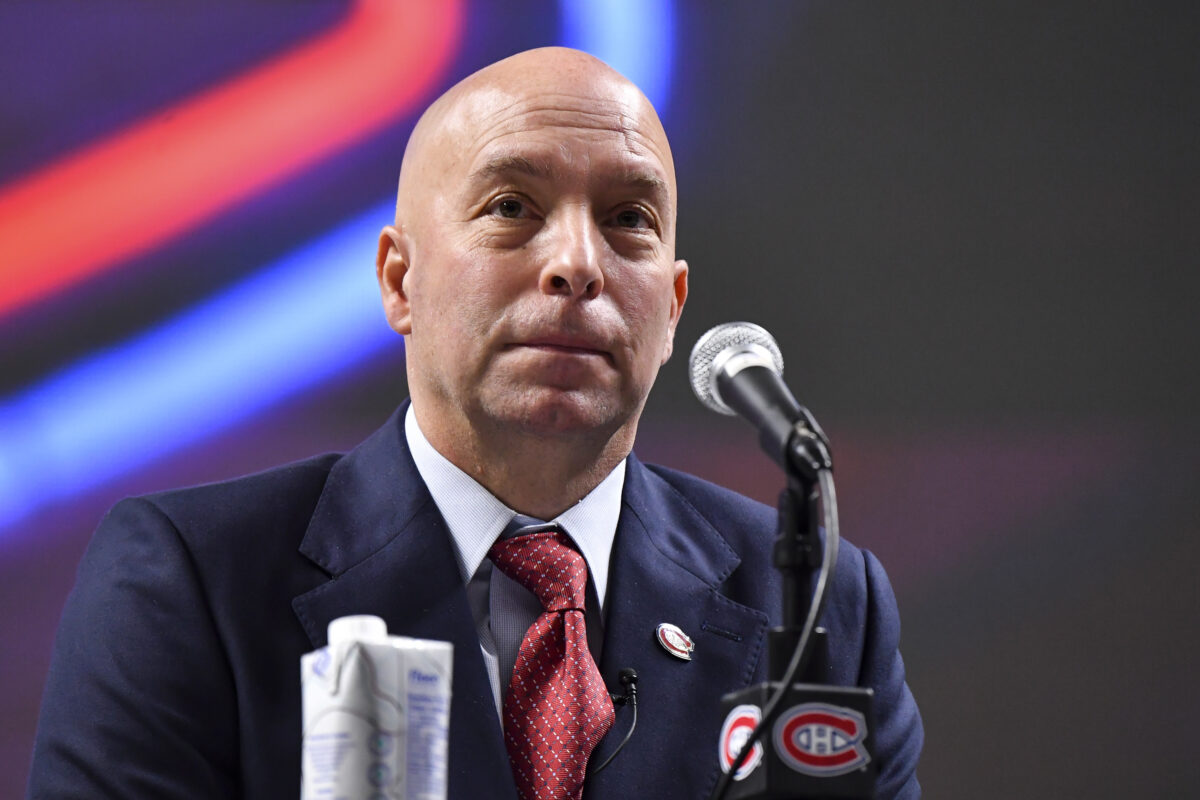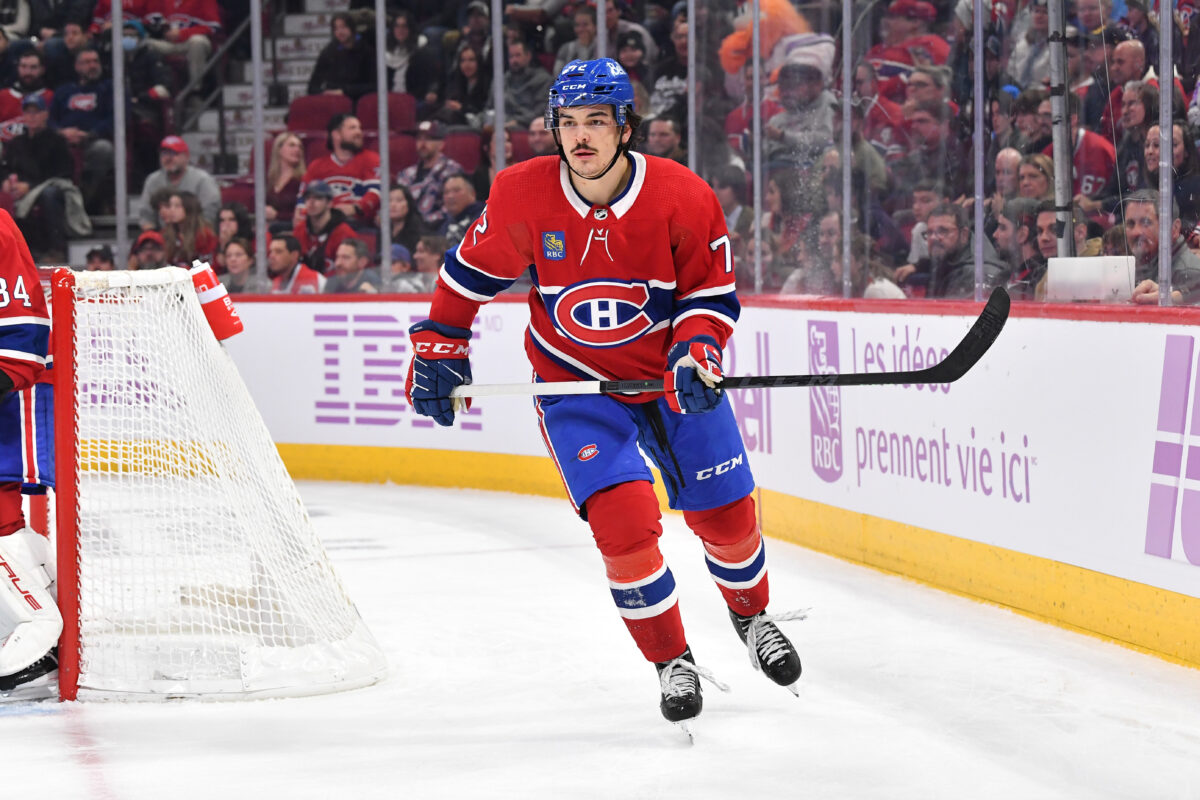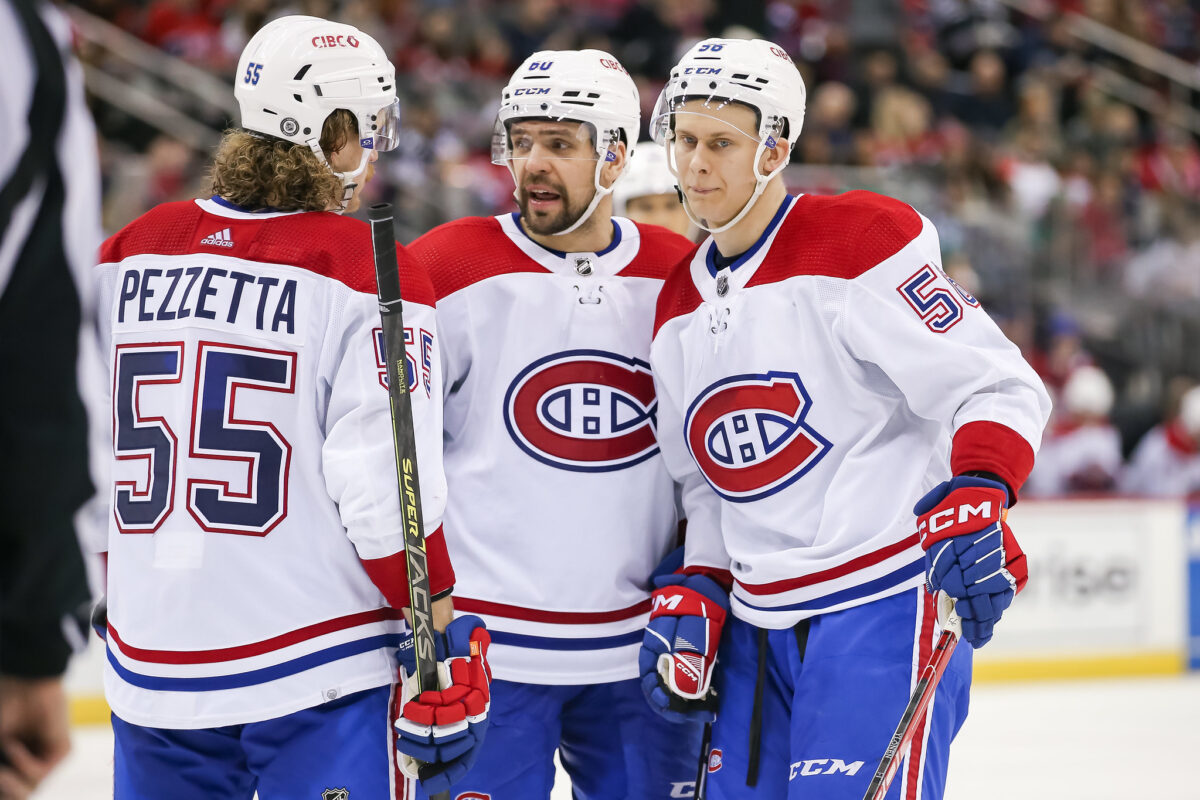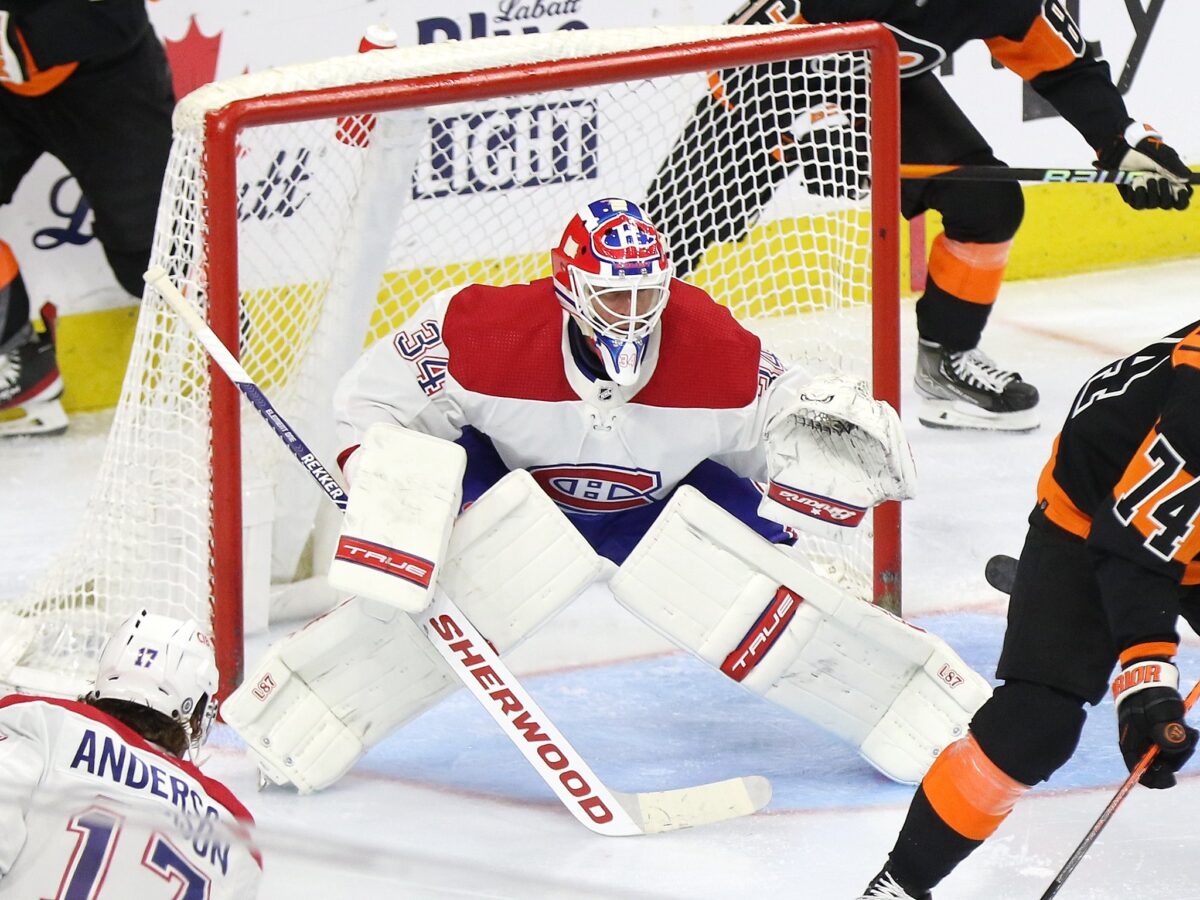Even if Montreal Canadiens general manager Kent Hughes fails to add any new players this coming offseason, he should be all right. Minus a few restricted free agents (RFAs) to re-sign, he’s already got a full roster with which to work, not to mention close to no expectations to so much as make the playoffs in 2023-24.

Sure, if recent reports of certain players being available for trade throughout the league are anything to go by, things may yet change… but more on that later. Assuming the status quo holds, there are still going to be decisions to make, just decisions only to come in training camp. Here are the likeliest odd men out per position, based on the 23-man roster limit:
3. Chris Wideman vs. Arber Xhekaj on Defense
On defense, there’s a fairly big, but necessary assumption to make, that the Canadiens will trade Joel Edmundson this coming offseason. There’s simply no room for him and the eight other defensemen projected to be in line for a roster spot as regulars last season (due to all the injuries at various times, including to Edmundson, who missed 21 games, himself).
That’s another assumption, that the Canadiens will stay healthy through training camp at least, to the point only 23 men make the roster. Even in such an instance, it’s theoretically possible they go with those eight other defensemen, making a since-traded Edmundson the titular (theoretical) odd man out.
However, on the odd chance they go with seven instead, it should come down to rookie Arber Xhekaj and veteran Chris Wideman, the two regulars with the lowest ice time per game (15:16 vs. 13:31). It would be easy to justify them keeping Wideman (the defense-low 13:31, for the record) as a veteran presence just in case. However, keep in mind, Wideman is still just 33 with 291 games under his belt. That’s literally the same amount of games as 23-year-old Nick Suzuki. So, “veteran” is a loose term, all due respect to Wideman.

In that sense, Wideman is just another body, albeit one capable of moving the puck and playing on the power play. The thing is, the Canadiens tended to play Xhekaj on the power play too and he ended up being more productive albeit to the tune of three points scored (to Wideman’s two).
There’s also a youth movement underway on the team. So, Wideman, who came aboard ahead of the last-place 2021-22 season under Hughes’ predecessor, Marc Bergevin, doesn’t have the same niche role available to him anymore. He does have a use, but as primarily the same extra body he was last year, in which case it makes more sense to send him through waivers, bury his $762,500 cap hit and keep Xhekaj up to take his place in a similar rotation in and out of lineup among the team’s younger defenseman, like last year.
The alternative is to deem Wideman too valuable to expose to waivers, which objectively speaking simply isn’t the case. However, there is a case to be made that Xhekaj, who is waiver-exempt, is better served getting more ice time in the American Hockey League. In such an instance, the opposite scenario should materialize.
2. Rem Pitlick vs. Jesse Ylonen at Forward
Jesse Ylonen is one of the aforementioned RFAs still to be signed, Rafael Harvey-Pinard the other (and Denis Gurianov… well, yeah, he’s, uh, there). Whereas Harvey-Pinard is a veritable lock to make the team out of training camp next season, Ylonen is still conceivably seen as a tweener in the eyes of management.

Ditto for Rem Pitlick. Despite having taken a step back from a production standpoint last season (compared to during his 37-point rookie season), he’s nevertheless established himself as someone who can play up and down the lineup like Ylonen. That isn’t necessarily the case for Gurianov, who’s only proven useful in a top-six role…when superior top-six options exist.
So, assuming the Canadiens don’t re-sign Gurianov (and they go with the usual suspects up front), that leaves 14 total names, excluding rookie Sean Farrell. He remains in the mix, but Pitlick and Ylonen are simply more NHL-ready, especially for the presumable depth role that will be available. Between him and Pitlick, Ylonen has similarly paid his dues, but, as a homegrown talent drafted by the Habs, he probably has more of an inside track.
Related: Canadiens Can’t Take Shortcuts with Farrell’s Development
Just like the Canadiens could go with eight defensemen, they could also theoretically go with 14 forwards, but something obviously has to go give one way or the other. That’s also failing to take into account the potential for the Canadiens to acquire Pierre-Luc Dubois, who has a) reportedly requested the Winnipeg Jets trade him and b) been linked to the Canadiens ever since he had the gall to be drafted into the NHL as someone born in Quebec.
Dubois-to-Canadiens rumors have obviously picked up steam, but it’s hard to lend them much credence at this point when other potential destinations exist and the reports of his request just surfaced. However, if fate does smile on the Habs fans hoping for him to end up in Montreal, it may not change much in all honesty (in terms of odd men out).
For example, another forward or two could go the opposite way, rendering the point moot. If not, fate simply makes the decision for the Canadiens and forces them to go with 14 forwards (and seven defensemen), with Ylonen maintaining his edge over Pitlick here.
1. Cayden Primeau vs. Jake Allen in Net
Speaking of rumors, the Philadelphia Flyers making goalie Carter Hart available certainly has thrown a wrench in the plans of Canadiens fans.
A few days ago, in the absence of any other realistic options, many had thought the Canadiens would simply go with the incumbent goaltending tandem of Samuel Montembeault and Jake Allen. More to the point, Habs fans were generally okay with it too. So, what’s changed?
Hart certainly is an intriguing option. However, according to the stats, he isn’t as significant of an upgrade over Montembeault to justify giving up much to get him. Montembeault has effectively wrested the No. 1 spot away from Allen, at least for the time being. Considering he’s earned a shot over a full season in that role and the Habs aren’t ready to compete, they shouldn’t be rushing to acquire a new starter, especially one who’s suffered through his share of struggles like Hart.
So, it should stay a question of whom the Canadiens send down between the veteran Allen and the suddenly waiver-eligible Primeau. On one hand, the Canadiens made a commitment to Allen, re-signing him to his new two-year, $7.7 million deal last October. On the other, they technically made a commitment to Primeau, drafting him in the first place.

Admittedly, little has changed on Primeau’s end of things to justify choosing him over Allen. Many still doubt Primeau’s ceiling, which is fair. All else being equal, if you’re Hughes, you probably try to slip Primeau through waivers despite another solid AHL season. However, all else being equal is also a polite way of saying Allen has continued to show statistical decline, admittedly playing for a bottom-tier defensive team (while Montembeault impressed under the same conditions, let’s not forget).
To be fair, Allen had his moments last season. However, he’s poised to get fewer opportunities to the point it makes sense to at least consider the idea he may be more useful in a veteran role in the AHL, mentoring the newly signed Jakub Dobes, in whom the Habs should be investing all their energy developing the right way, especially if they’re convinced Primeau isn’t their goalie of the future. And, if Primeau is though? Are they really going to risk exposing him to waivers? They shouldn’t.
This is all food for thought. Ultimately, you have to expect the Canadiens to go with Allen over Primeau, as it’s so beyond the realm of what’s expected for them go any other way. That includes carrying three goalies, in which case the odd-men-out arguments on defense and up front take on even greater significance.